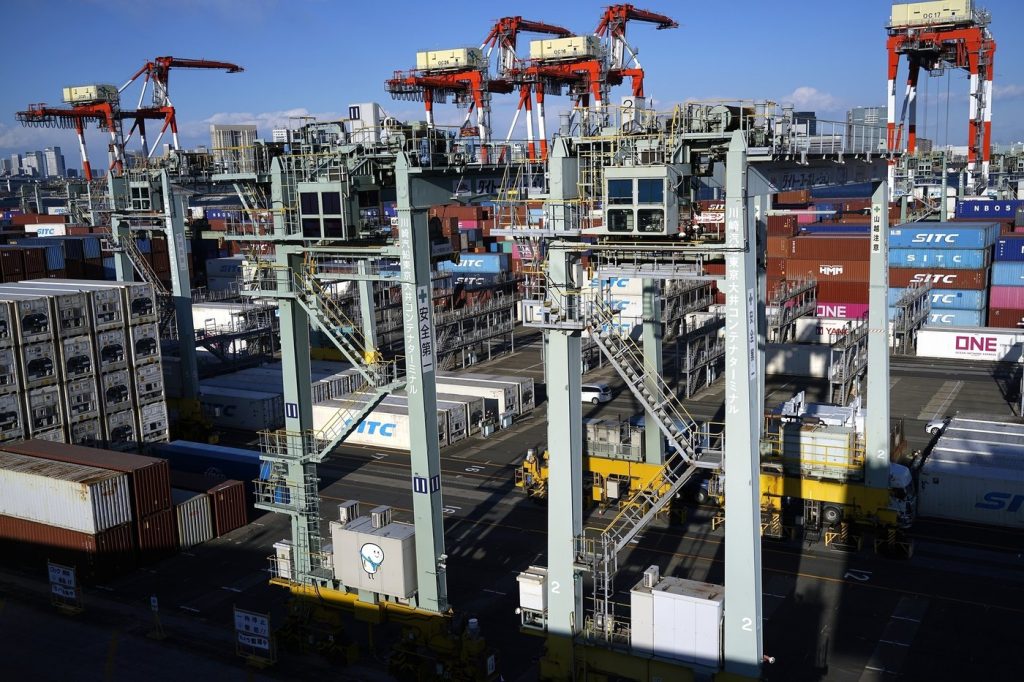TOKYO (AP) — Japan's exports to the United States, its largest single trading partner, experienced a nearly 2% decline in April as the effects of tariff hikes imposed by former President Donald Trump became more pronounced. This downturn in exports is significant given the backdrop of broader economic challenges Japan is facing.
On a global scale, Japan's exports rose by just 2% year-on-year in April, a slowdown from the 4% growth recorded in March. This drop resulted in a trade deficit for Japan, amounting to 115.8 billion yen (approximately $804 million), marking a considerable shift from the 504.7 billion yen surplus experienced a year earlier. This is Japan's first trade deficit in three months, indicating potential vulnerabilities in its economic recovery.
The decrease in exports to the United States notably coincides with an over 11% fall in imports from the U.S., while overall imports dropped by 2.2%. This combination of falling exports and imports indicates a potential strain on Japan's economic growth. Notably, the Japanese economy contracted by 0.7% in the previous quarter, raising concerns about its resilience amidst ongoing trade negotiations and tariff implementations.
Amid these challenges, Japan has been actively seeking the removal of these tariffs, particularly the 25% tariffs on automobiles, which are a crucial component of trade between the two nations and vital for Japan’s economic growth. While the Trump administration has made some concessions on tariffs, it has largely maintained elevated tariffs on essential goods such as steel and aluminum.
Despite suffering setbacks in trade with the United States, Japan has seen an expansion in exports to other regions, especially Southeast Asia. However, the overall weakening of exports is a worrying trend as it could hinder the country’s growth trajectory moving forward. The strengthening of the Japanese yen against the U.S. dollar—trading recently at about 144 yen down from approximately 155 yen a year ago—has further eroded the yen value of exports, compounding the troubles faced by Japanese exporters.
The decline in automobile exports, which fell nearly 6% in April compared to the previous year, underscores the impact of these tariffs on Japan’s crucial manufacturing sector. Japan's Economic Revitalization Minister Ryosei Akazawa, who leads the country’s tariff negotiation efforts, is scheduled to visit the United States for further discussions likely over the upcoming weekend, in what marks the third round of these high-stakes negotiations. The outcome of these talks could hold significant implications for the economic relationship between Japan and the U.S.
As Japan navigates these complex economic challenges, the ongoing trade dynamics will be crucial for its economic recovery and growth in the global market.











